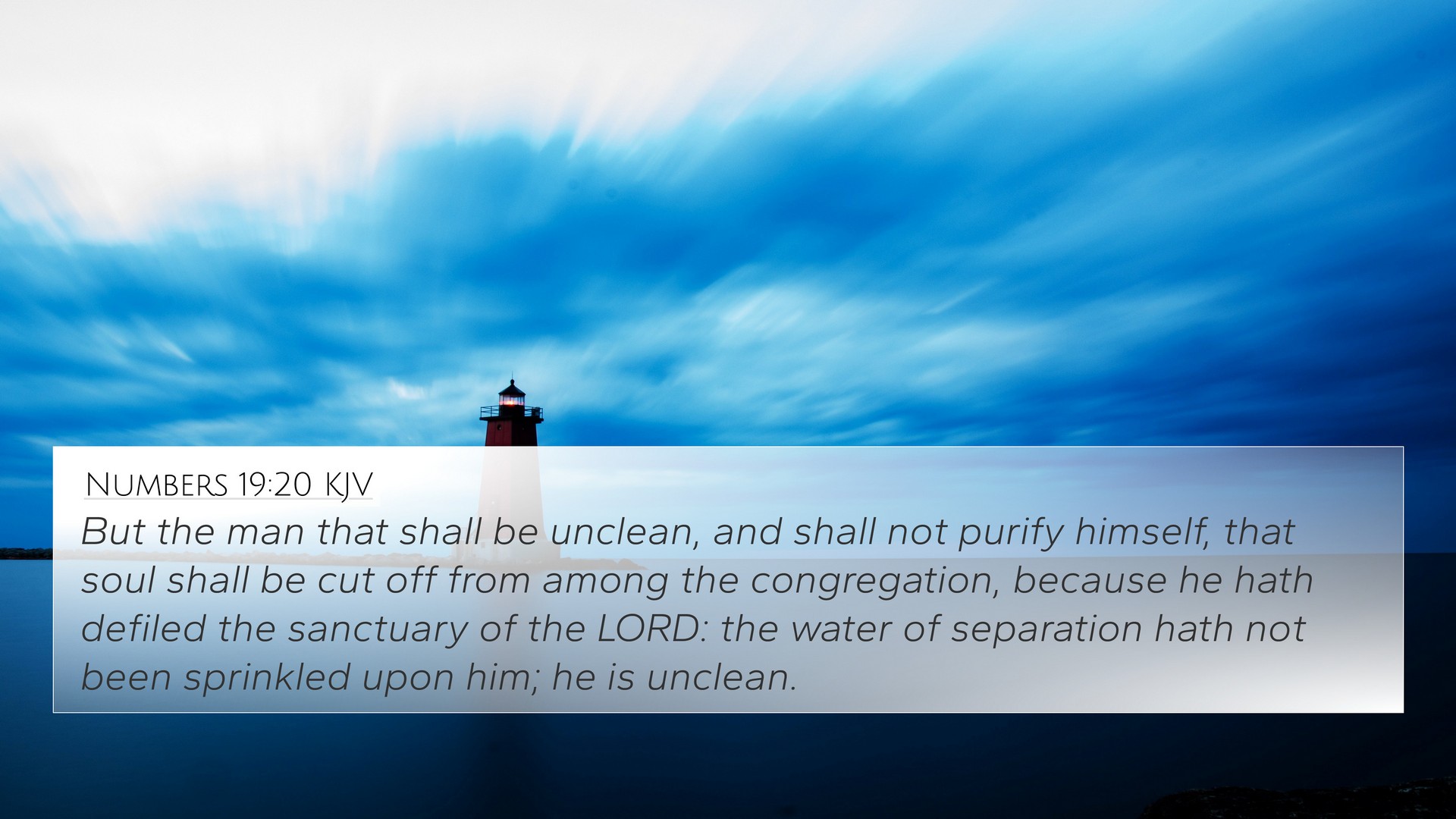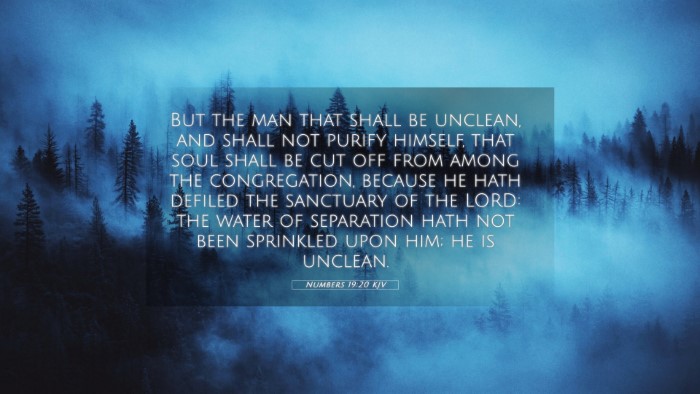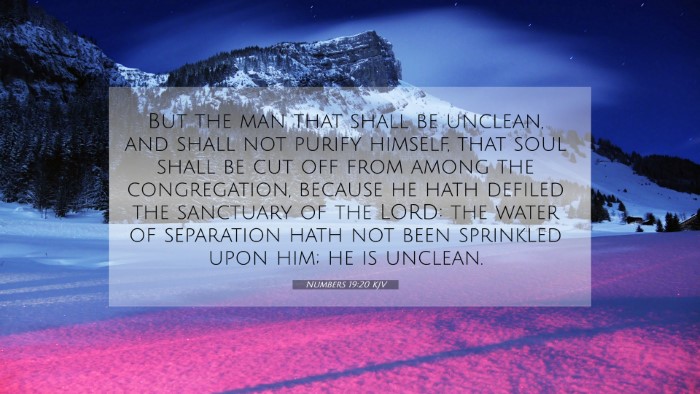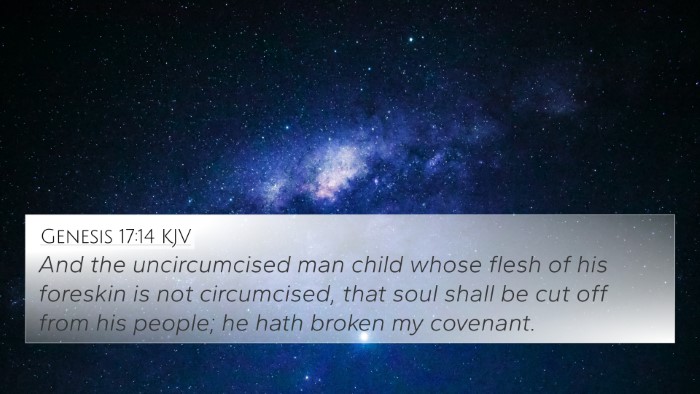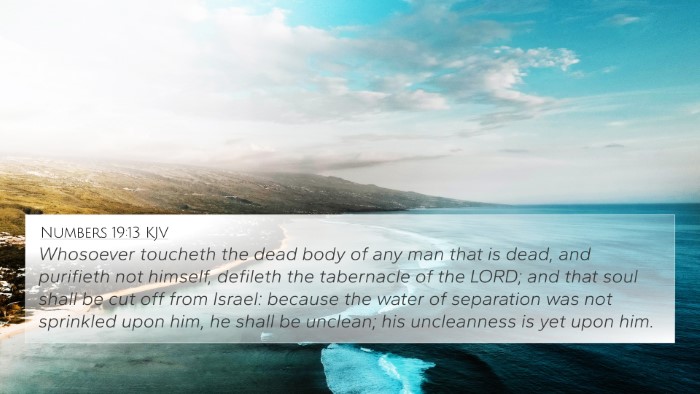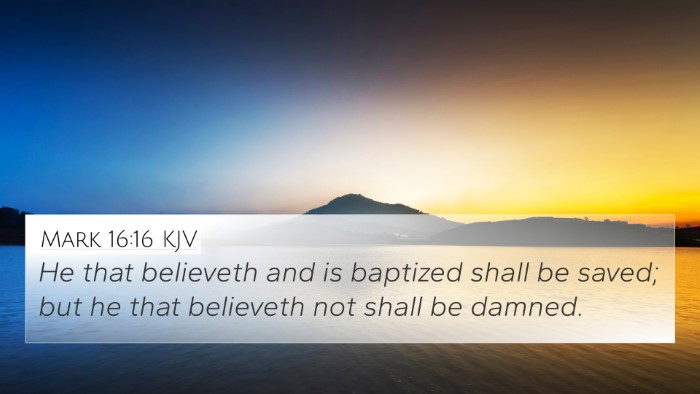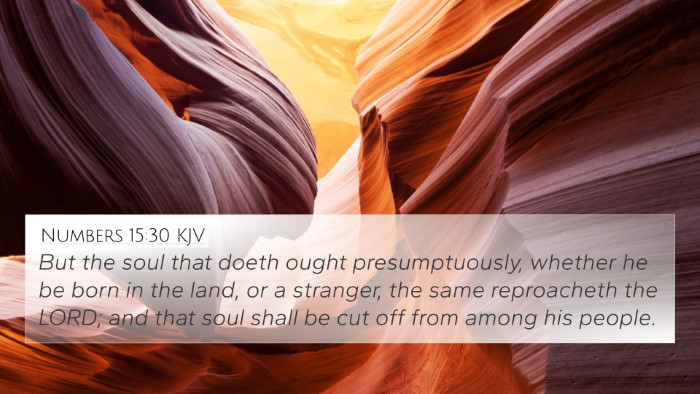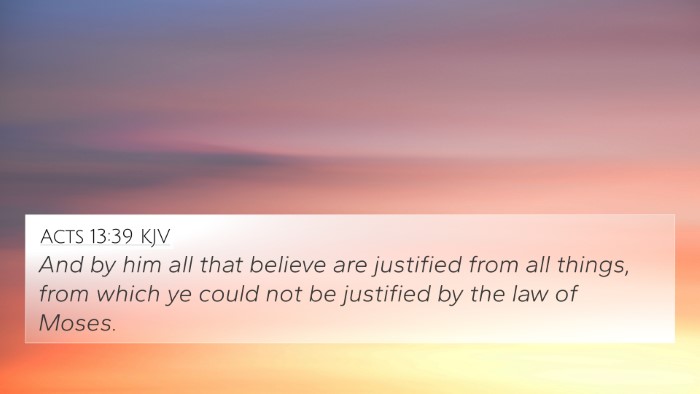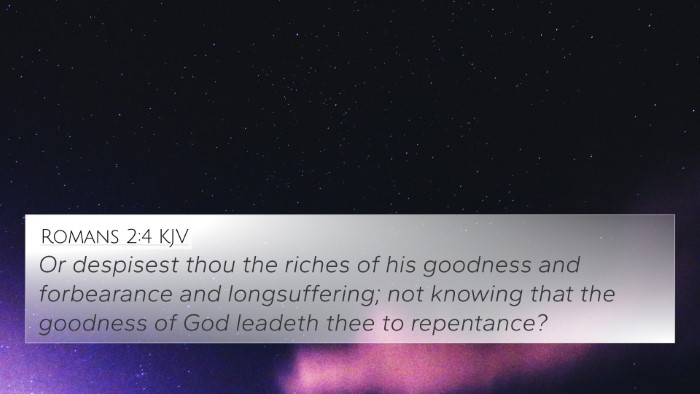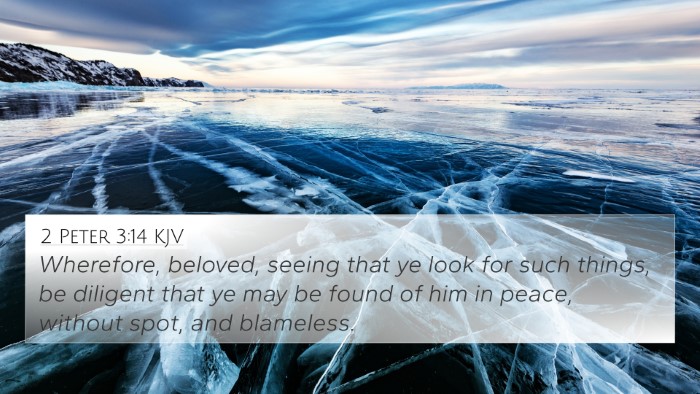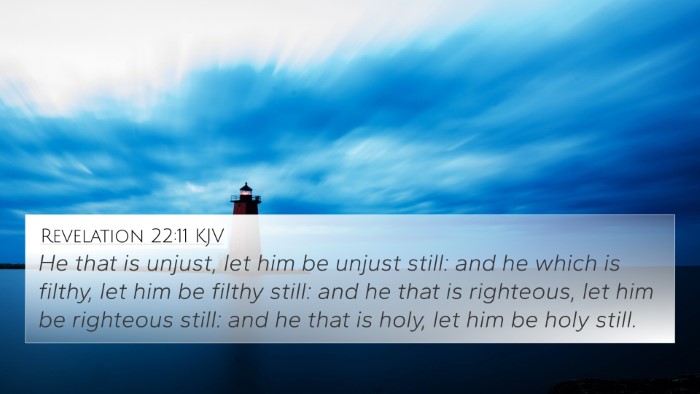Understanding Numbers 19:20
Numbers 19:20 states: "But the man who is unclean and does not purify himself, that person shall be cut off from the assembly, because he has defiled the sanctuary of the LORD. The water for impurity has not been sprinkled on him; he is unclean."
Summary of Commentary Insights
In this verse, the significance of ritual purity and the consequences of failing to observe these laws are emphasized. The commentary interpretations reveal several layers of meaning.
-
Matthew Henry:
Henry emphasizes the importance of spiritual cleanliness and how it reflects one's standing with God. He highlights that those who neglect their duty to purify themselves expose themselves to spiritual peril and exclusion from communal worship.
-
Albert Barnes:
Barnes points out that the act of being cut off is not merely physical separation but reflects a severe spiritual consequence, suggesting that true worship requires both inner and outer purity.
-
Adam Clarke:
Clarke notes the ceremonial aspects of the purification process. He elaborates on the significance of the water used for purification, relating it to Christ and the cleansing He provides, thus creating a connection between Old Testament rituals and New Testament teachings.
Biblical Connections
Numbers 19:20 offers vital insights into the theme of purity and its relation to community worship within the Old Testament. The following cross-references illustrate related themes:
- Leviticus 10:3: Emphasizes the holiness of God's presence and the importance of proper conduct to avoid being cut off.
- Exodus 30:20-21: Discusses the need for priests to wash before entering the tabernacle of the congregation, reinforcing the importance of purity.
- Hebrews 10:29: Connects to the New Testament context indicating the severe consequences of dishonoring the blood of the covenant.
- 1 Corinthians 11:27-29: Talks about the condition necessary for partaking the Lord's Supper and the spiritual consequences of partaking unworthily.
- Matthew 5:8: "Blessed are the pure in heart, for they shall see God," linking outward purity to inner sanctification.
- Psalms 24:3-4: Speaks about who may ascend to the hill of the Lord, again highlighting purity requirements.
- Isaiah 52:11: Advises to depart from unclean things, warning against spiritual contamination.
- John 15:2: Jesus speaking about pruning and bearing fruit, related to God's expectation of purity in believers.
- Revelation 21:27: Discusses the purity required for those who enter the New Jerusalem, emphasizing the continuity of God's holiness.
- 2 Corinthians 7:1: Paul instructs believers to cleanse themselves from every defilement, linking to the importance of inner purity.
Thematic Bible Verse Connections
The theme of cleanliness and separation from sin runs throughout Scripture. Understanding Numbers 19:20 in conjunction with these verses can provide deeper insights into God’s standards of holiness and the implications for both corporate and individual worship.
Cross-Referencing Insights
Key to understanding Numbers 19:20 is using tools for Bible cross-referencing, allowing for a richer interpretation of related passages. Here are some methods and resources:
- Bible Concordance: Look for terms such as "clean," "unclean," and "purification" to find relevant verses.
- Bible Cross-Reference Guide: Utilize guides to track themes and topics across the scripture.
- Cross-Reference Bible Study: Engage with thematic studies that investigate the principle of purity.
- Comprehensive Bible Cross-Reference Materials: Gather collections of scriptures that discuss holiness and purification.
Conclusion
Numbers 19:20 serves as a vivid reminder of God's commands regarding purity and the seriousness of maintaining a right standing with Him and the community. By exploring the inter-Biblical dialogues and the theological implications through cross-referencing, one can gain a comprehensive understanding of the importance of both ritual and spiritual purity in the journey of faith.
Final Thoughts
For anyone searching for Bible verse interpretations, this comprehensive approach reveals the depth and interconnectedness of Scripture. References to purity and holiness resonate through the entire text, forming a robust framework for worship that is essential for individuals and the faith community alike.
